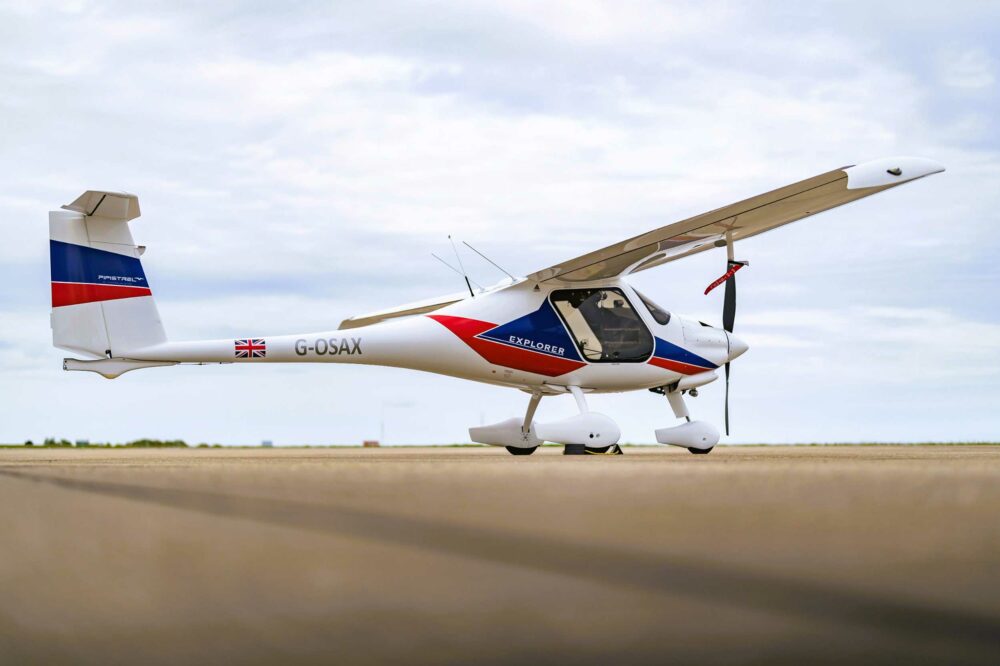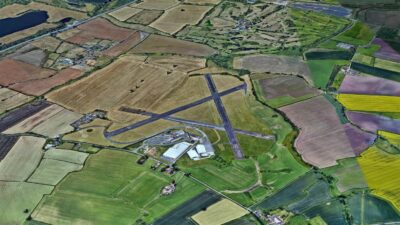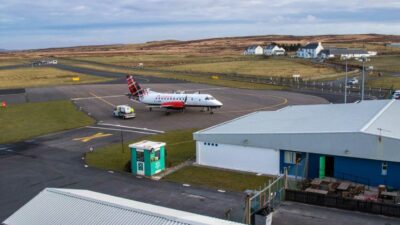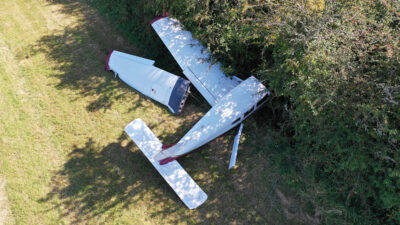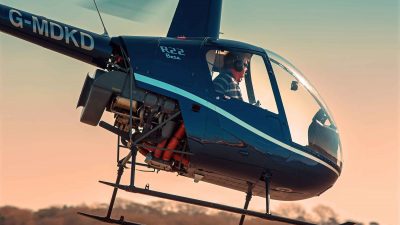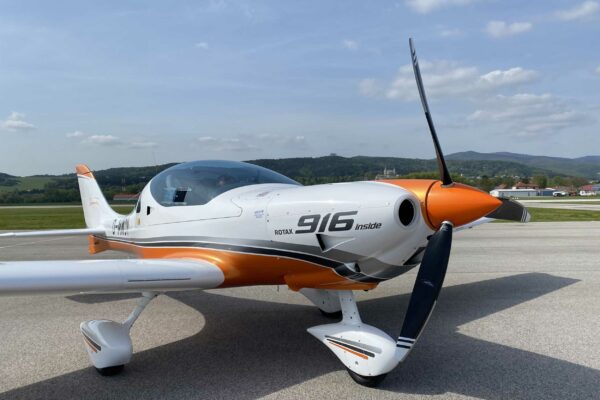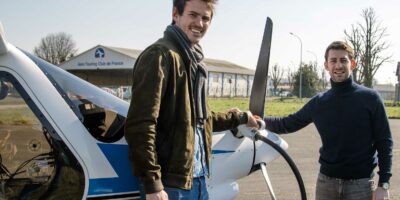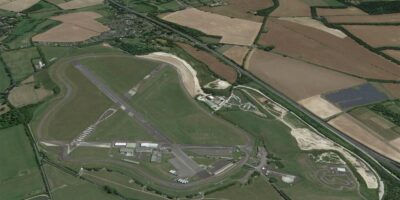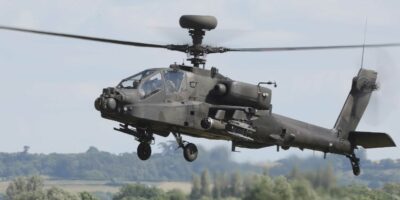Two more flying schools have introduced electric Pipistrel Velis aircraft to their fleets, working with NEBOair which leases the aircraft.
They are Moray Flying Club, based at RAF Lossiemouth, and Saxon Air at Norwich Airport. A third flying school, Airbourne Aviation, is already operating a Velis Electro at Popham Airfield and recently one of its students, Emma Taylor, became the first to pass SEP Electric Differences Training.
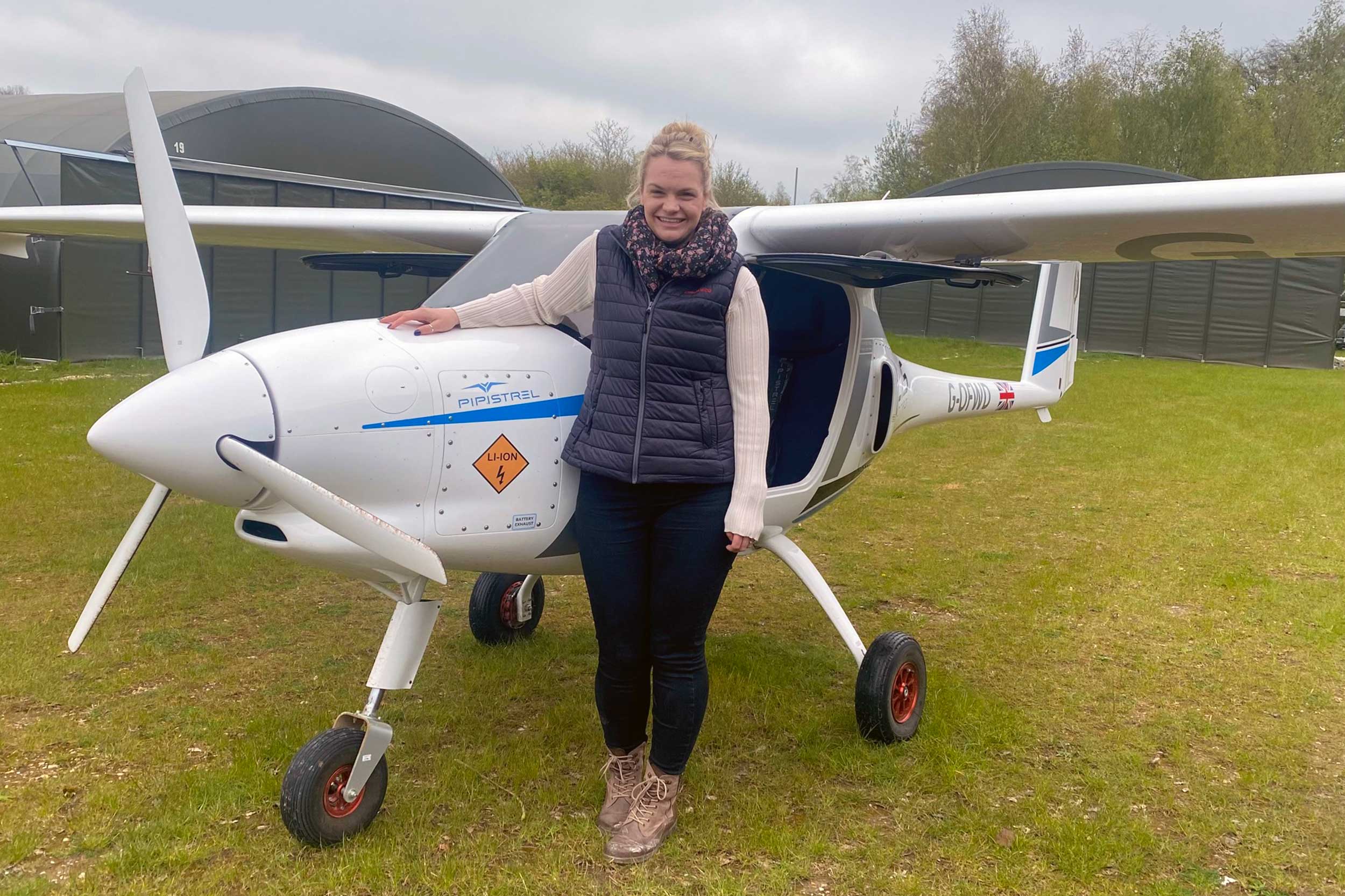
Airbourne PPL student Emma Taylor has passed Differences Training to fly the Pipistrel Velis Electro
Saxon Air operates the Electro with the UK’s first Virus SW121A, also known as ‘The Explorer’ aircraft, which has a conventional Rotax engine.
NEBOair director Kerry Wilmot said, “When introduced with the Velis Electro, The Explorer’s exceptional environmental performance underlines our commitment to the decarbonisation of pilot training. Its advanced features ensure that every aspect of the aircraft is designed to optimise efficiency and minimise environmental impact, making it an ideal choice for PPL training at Saxon Air.”
Saxon Air’s CEO, Alex Durand, added, “Welcoming the UK’s first Pipistrel Explorer into our fleet marks a milestone in our journey to offer affordable, lower-emission flight training. This is a pivotal moment for Saxon Air and a huge leap towards our vision of a sustainable aviation future.”
Moray Flying Club operated its first training flight in a Pipistrel Velis Electro aircraft – callsign ‘MORAY 01 ELECTRIC’ – on 24 March 2024. It’s part of the club’s (RAF’s) drive to reduce the environmental and noise impact of their flying.
Other green-minded moves have enabled MFC to further cut emissions, with the use of a NEBOair-supplied Virtual Reality simulator cutting down on the overall number of flying hours needed to achieve a full private pilot’s licence.
The Club has also replaced two older aircraft with Rotax-engine aircraft that use lower-lead fuel and are quieter.
MFC estimate that the new innovations will slash their emissions by around 30%, which they say is just the start.
“As the RAF seeks to achieve Net Zero by 2040, ahead of the UK’s 2050 target, our recreational flying clubs need to play their part and so we’re delighted that our electric aircraft has taken to the skies,” said Squadron Leader David Taudevin, Officer-in-charge, Moray Flying Club.
“This is a momentous occasion for us as a club and represents a big leap forward into a new world of sustainable aviation, helping Moray Flying Club’s students learn to fly in a cleaner, greener way.
“While these innovations are already helping our Club significantly reduce its environmental and noise impact, cutting our direct emissions is only the first step. We hope that by sharing our experience with other military and civilian flying clubs we can help drive the recreational flying sector towards Net Zero.”


